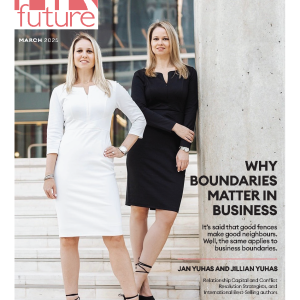In the ever-evolving landscape of technology, the recruitment industry is undergoing a seismic shift. Gone are the days when hiring was solely based on a resume scan or a face-to-face interview. Today, the fusion of generative AI and talent acquisition is not just a buzzword; it’s a transformative force.
This article delves deep into how generative AI, with its unparalleled capabilities, is redefining the recruitment paradigm. For technology professionals, understanding this shift is not just beneficial—it’s essential.
1. The Dawn of Generative AI in Recruitment
Generative AI, a subset of artificial intelligence, is designed to generate new content, be it text, images, or even complex patterns. Its applications range from creating art to simulating drug molecules. But its foray into the recruitment sector is what’s catching the eyes of many.
Imagine a scenario where AI can draft job descriptions, simulate candidate responses, and even predict the future trajectory of a potential hire. Sounds futuristic? It’s happening now. And for those who are still relying on traditional hiring methods, it’s high time to embrace this change.
2. Benefits of Integrating Generative AI in Talent Acquisition
The integration of generative AI into recruitment is not just about automation; it’s about optimization. Here’s how:
- Precision in Job Descriptions: Crafting a job description is an art. With generative AI, recruiters can create descriptions that resonate with the right audience, ensuring that only the most suitable candidates apply.
- Simulating Candidate Responses: Through AI prompts, generative AI can simulate potential responses of candidates, helping recruiters prepare for interviews and gauge candidate suitability. For instance, platforms like PromptPal offer some of the industry’s best AI prompts, aiding in this simulation process.
- Predictive Analysis: Generative AI can analyze vast amounts of data to predict a candidate’s future performance, cultural fit, and even their likelihood to stay with the company. This predictive power ensures that companies make informed hiring decisions.
- Diversity and Inclusion: AI, when trained correctly, can help eliminate unconscious biases, paving the way for a more diverse and inclusive workforce.
- Cost and Time Efficiency: By automating and optimizing various recruitment processes, companies can save significant time and resources.
3. Challenges and Ethical Considerations
While the benefits are manifold, it’s also crucial to address the challenges and ethical considerations that come with the integration of generative AI in recruitment.
- Data Privacy: With AI analyzing vast amounts of personal data, ensuring data privacy becomes paramount. Companies need to be transparent about how they use and store candidate data.
- Bias in AI: If not trained properly, AI can perpetuate existing biases, leading to skewed hiring decisions.
- Depersonalization: Over-reliance on AI can lead to a depersonalized hiring process, where human touchpoints become minimal.
- Ethical Use of Predictive Analysis: Predicting a candidate’s future trajectory can be a double-edged sword. While it can aid in making informed decisions, it can also lead to potential discrimination if not used ethically.
4. The Role of the Best AI Tools in Streamlining Recruitment
The surge in generative AI’s popularity in recruitment is largely due to the proliferation of sophisticated AI tools. Platform curate some of the best AI tools available, ensuring that recruiters have access to top-notch technology. Here’s how these tools are making a difference:
- Automated Resume Screening: Gone are the days of manually sifting through hundreds of resumes. AI tools can quickly scan, filter, and rank candidates based on predefined criteria, ensuring that only the best get shortlisted.
- Chatbots for Initial Interactions: AI-driven chatbots can handle initial candidate queries, schedule interviews, and even provide feedback, ensuring a seamless candidate experience.
- Video Interview Analysis: Some advanced AI tools can analyze video interviews, gauging a candidate’s body language, tone, and expressions, offering deeper insights into their suitability.
- Data-Driven Insights: With the power of AI analytics, recruiters can derive actionable insights from data, helping them refine their strategies and make better hiring decisions.
5. Case Studies: Companies Leading the AI Recruitment Revolution
Several forward-thinking companies have already integrated generative AI into their recruitment processes, reaping significant benefits. Here are a few notable examples:
- IBM’s Watson: IBM’s AI powerhouse, Watson, has been instrumental in transforming their talent acquisition. From crafting job descriptions to predicting candidate success, Watson has streamlined IBM’s hiring, reducing time-to-hire by a significant margin.
- Unilever’s Digital Hiring: Unilever, in partnership with AI platforms, has revolutionized its graduate hiring process. Through AI-driven games and video interviews, they’ve managed to make their recruitment more efficient and candidate-centric.
- GapJumpers’ Blind Auditions: GapJumpers, a hiring platform, uses AI to conduct ‘blind auditions,’ ensuring that candidates are judged solely on their skills, eliminating any unconscious biases.
6. Preparing for the Future: Upskilling in the Age of AI Recruitment
For technology professionals, understanding the nuances of AI-driven recruitment is essential. But more than that, it’s crucial to upskill and stay relevant in this changing landscape. Here’s how:
- Embrace Continuous Learning: The tech world is ever-evolving. Professionals should invest in courses, workshops, and certifications, especially those centered around AI and data analytics.
- Soft Skills Matter: While AI can gauge technical competencies, soft skills like communication, adaptability, and emotional intelligence remain paramount. Professionals should focus on honing these skills to stand out.
- Stay Updated: Subscribing to tech journals, attending webinars, and being part of tech communities can help professionals stay abreast of the latest developments in AI recruitment.
7. The Global Impact: AI Recruitment Beyond Borders
Generative AI’s influence isn’t limited to specific regions; it’s making waves globally. From Silicon Valley startups to multinational corporations in Asia, AI-driven recruitment is becoming the norm.
- Cross-border Hiring: AI tools can seamlessly analyze resumes from different countries, understanding varied formats and cultural nuances, making international hiring a breeze.
- Language No Barrier: Advanced AI tools can translate and interpret resumes in multiple languages, ensuring that talent acquisition isn’t restricted by linguistic boundaries.
- Cultural Fit Assessment: AI can be trained to understand different cultural indicators, ensuring that international hires align with a company’s culture.
8. The Human-AI Collaboration: A Balanced Approach
While AI’s capabilities in recruitment are undeniable, the human touch remains irreplaceable. The future lies in a balanced approach where AI tools complement human intuition.
- Emotional Quotient: While AI can analyze data, human recruiters bring emotional intelligence to the table, understanding the nuances of human behavior beyond algorithms.
- Ethical Decision-making: Humans ensure that the recruitment process remains ethical, using AI’s recommendations as a guide rather than the gospel.
- Building Relationships: AI can shortlist candidates, but building long-term relationships with potential hires requires the human touch.
9. The Road Ahead: Predictions for AI in Recruitment
As we look to the future, it’s evident that generative AI’s role in recruitment will only grow. Here are some predictions:
- Holistic Candidate Profiles: AI will create comprehensive candidate profiles by analyzing their digital footprints, from social media to online portfolios.
- Virtual Reality (VR) Interviews: With the integration of AI and VR, candidates might soon find themselves in virtual interview rooms, offering a more immersive experience.
- Bias-free AI: Continuous advancements will lead to AI models that are entirely free from biases, ensuring fairer recruitment processes.
10. Conclusion: Embracing the AI Revolution in Recruitment
The fusion of generative AI and talent acquisition is more than just a technological advancement; it’s a paradigm shift. As AI tools become more sophisticated and integrated into the recruitment process, companies stand to benefit from more efficient, data-driven, and unbiased hiring. For technology professionals, staying updated and adapting to this change is not just advisable—it’s imperative. As we stand on the cusp of this revolution, one thing is clear: the future of recruitment is not just human, it’s human augmented by AI.
HR Future Staff Writer
























